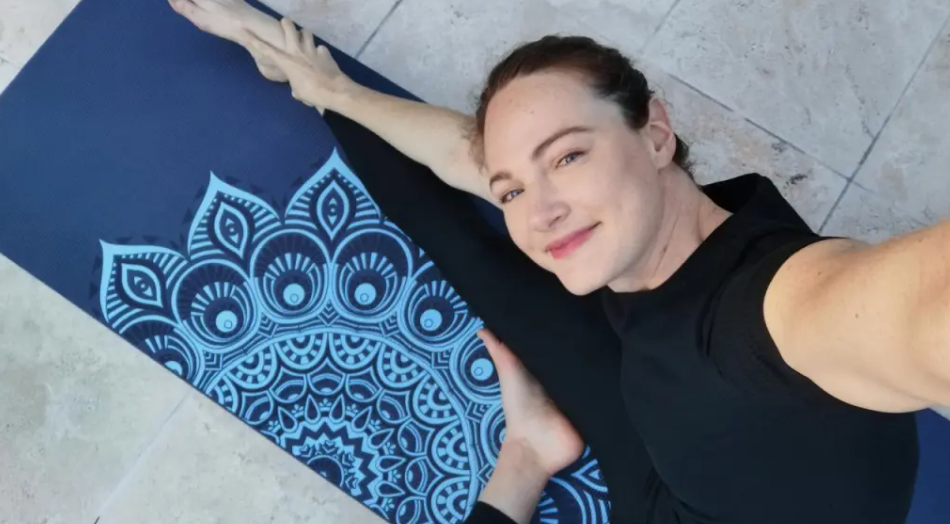Olympic champion Cate Campbell opens up about her mental struggles

Cate Campbell is speaking out about something she used to be ashamed about, to push for greater awareness about a condition many Aussies suffer from.
Cate Campbell remembers the exact moment she needed help to overcome her mental illness.
The Olympic gold medallist was heating up milk in the microwave when the power tripped.
“Instead of just going outside and flicking the power back on, I dissolved into a sobbing mess,” says Campbell, who was diagnosed with depression in 2020.
“Not just a few tears … gut-wrenching sobs which came from a place deep within me. I was overwhelmed by grief, anguish, loneliness, shame and a deep sadness – the likeness of which I had never experienced before.
“I knew this wasn’t a normal reaction to the power tripping out, so I booked myself into seeing a clinical psychologist immediately.”

Cate Campbell. Picture: Tara Croser.
With the Tokyo Olympics postponed and already suffering from injuries and a relationship break up, Campbell was living every day in mental anguish.
“I was living away from friends and family in Sydney and very lonely,” she says.
“Managing the incredibly high demands of training for the Olympics and being very unhappy in my personal life while also struggling to manage physical injuries just became too much.”
Campbell was also afraid of sharing her battle with depression.
“I was terrified people would see me as weak or defective in some way,” she says.
“I lied about my appointments with the psychologist and when I was eventually prescribed anti-anxiety medication, I made sure I hid the medication from my roommate in case she googled the drug and found out my secret.”
The stigma of mental health is still one of the greatest barriers today, with 94 per cent of Australians with lived experience of mental health issues saying stigma is prevalent.
The Mental Health Measure 2022 survey, conducted by WayAhead, also found that 84 per cent with a mental health issue have been judged or criticised because of it.
“I only realised I had a subconscious stigma towards mental health when I was confronted with my own battles … I never viewed mental illness as a weakness, until it happened to me,” Campbell says. “I never judged anyone for suffering from it, until I judged myself.”
Campbell is using her personal experience to push for greater awareness of depression and remove the stigma of the condition this Mental Health Month.
“The earlier we start having those conversations about it, the better.”

Cate says she’s on the road to better mental health.
DON’T BE ASHAMED
About 90 per cent of respondents surveyed have, at some point in their life, been afraid or embarrassed to ask for help about their mental health.
Millennials were the most hesitant to ask for help than any other age group, with 50 per cent of those aged 18-24 choosing family, ahead of workplace, school or friends when asked who they were most afraid or embarrassed to seek help from.
“Although people know where to go, less than a third are getting help within the first few weeks of realising they need it,” WayAhead’s Asha Zappa says.
“Almost 39 per cent said it took three months to a year, 20 per cent said it took one year or more, and 10 per cent indicated they are yet to get help.”
Psychotherapist Melissa Ferrari says: “Many can find it hard to have that conversation with a loved one or to seek the support that they need as to them it’s an admission that something is wrong with them.”
“This can make it tough for someone to express the difficulties they are facing or get the help that they need.”

Sydney psychotherapist Melissa Ferrari. Picture: David Swift
DITCH THE STIGMA
To remove the stigma of mental health, Zappa believes public education is key.
“We need to continue educating Australians in our school, workplace, family and community settings,” they say.
“Together, we need to lift the veil on mental health and help society understand ways to work with people experiencing mental health concerns and navigate the process with acceptance and without judgment and criticism.”
Ferrari urges Australians to normalise the asking of support.
“If we sense that a friend, family member or work colleague seems to be struggling, take the time to let them know that we are here for them and to encourage them to open up and to support those that need a listening ear or help. One day it may be you in the same place.”
WayAhead is encouraging everyone to “tune in” to their mental health. Visit mentalhealthmonth.wayahead.org.au
NEED HELP?
– Be comfortable with those you seek support from. With a professional, do some research on their qualifications and credibility and make sure they fit what you are looking for. With family and friends, choose someone who is not judgmental.
– Access support services and resources. Organisations such as Beyond Blue, Lifeline, Kids Helpline and Headspace are here to help you find the support that you need.
– First stop is your GP. Let them do an assessment for you and make a referral. Keep in mind that you don’t have to go to the first professional you meet. Take your time and find the right fit for you, whether that be a psychologist or a psychotherapist.
Source: Psychotherapist Melissa Ferrari
Lifeline: 13 11 14
Beyond Blue: 1300 22 4636
Originally published as Olympic champion Cate Campbell opens up about her mental struggles
Newsletter
Stay up to date
Sign up to our Mind Reader newsletter for monthly mental health news, information and updates.